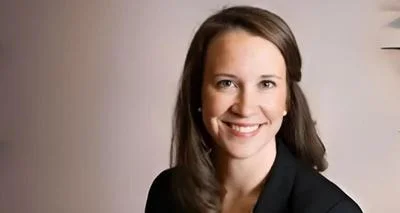Angela Smith Executive Vice President | badgerinstitute.org
Angela Smith Executive Vice President | badgerinstitute.org
A legislative committee formed to study declining enrollment across the University of Wisconsin System may recommend ending what remains of the two-year branch campus system. The leadership of the Study Committee on the Future of the University of Wisconsin System insists that no one on the 18-member committee has suggested this in its first two meetings, held in July and last Thursday, Aug. 8.
Jay Rothman, president of the Universities of Wisconsin, told the Badger Institute through a spokesperson that the fate of branch campuses would not be decided apart from a review of all system campuses.
However cautious and deliberative the committee is, it will be difficult to avoid mounting evidence. With alternatives such as expanded liberal arts programs at technical colleges and more access to four-year colleges, questions arise about the necessity of two-year schools.
The number of two-year campuses has shrunk by six in half a year, leaving seven remaining. Two more could close if enrollments do not improve immediately. Overall enrollment has dropped by more than 64%, from 9,959 in 2010 to 3,556 in 2023, according to a UW-Milwaukee report. Enrollment fell by over half since 2018 when two-year schools came under four-year school authority.
UW-Oshkosh at Fox Cities branch saw enrollment fall from 1,629 to 563 in 2023. UW-Stevens Point at Wausau's enrollment went from 802 to 364. Only four branches—UW-Green Bay at Manitowoc, UW-Platteville at Baraboo Sauk County, UW-Eau Claire at Barron County, and UW-Whitewater at Rock County—had slight enrollment increases over the last two school years.
Part of the challenge is fewer high school students seeking college degrees and increased competition for two-year schools' niche roles. Wisconsin’s technical colleges now offer liberal arts degrees and four-year schools are generally easier to get into than before.
Committee Chair Rep. Amanda Nedweski stated: “We’re facing some very serious demographic challenges reflected in declining enrollment across the system... There may be some on the committee who see branch campuses as low-hanging fruit.”
Nedweski emphasized that it is not within this committee's role to decide on closing campuses. Not everyone on the committee agrees that branch campus closings will inevitably enter discussions during their three remaining meetings through October.
The subject remains pressing as UW-Platteville’s Richland Center campus closed earlier this summer and UW-Milwaukee announced immediate closure plans for its West Bend campus with Waukesha following by spring 2025. Other closures include UW-Oshkosh at Fond du Lac and Fox Cities campus in Menasha; without increased enrollments defying decade-long trends, closures might extend further according to officials like UW-Stevens Point Chancellor Thomas Gibson.
Gibson noted financial strains with expected deficits for Wausau ($1 million) and Marshfield ($190,000) branches in 2025 atop existing debts nearing $1.6 million combined by end-2024 school year.
Local officials have voiced opposition. Outagamie County Executive Tom Nelson criticized leadership decisions impacting Fox Cities students and families harshly while symbolic rejections came from faculty Senate votes against teaching layoffs resulting from campus closures despite lacking actual impact on staffing cuts.
Federal funding sustained these institutions recently but funds from COVID-19 relief bills are nearly exhausted nationally—a study showed around $25 billion received was largely spent by February 2024 affecting budgetary resilience moving forward alongside dwindling state contributions ($1.3 billion or approximately 17%).
Nedweski said, “I want to know why they (students/parents) aren’t buying what you’re selling.” Committee vice-chair Sen Cory Tomczyk shared frustration regarding calls for increased funding amidst systemic declines stating, "It boggles my mind."
Mark Lisheron is Managing Editor at Badger Institute.
Permission granted for reprint provided author/Badger Institute credited properly.
---






 Alerts Sign-up
Alerts Sign-up